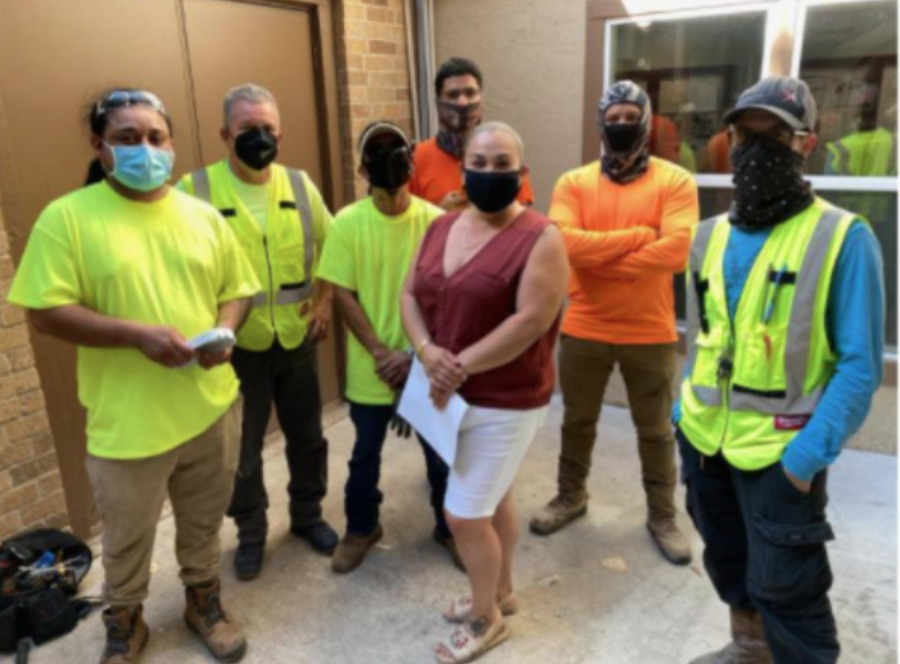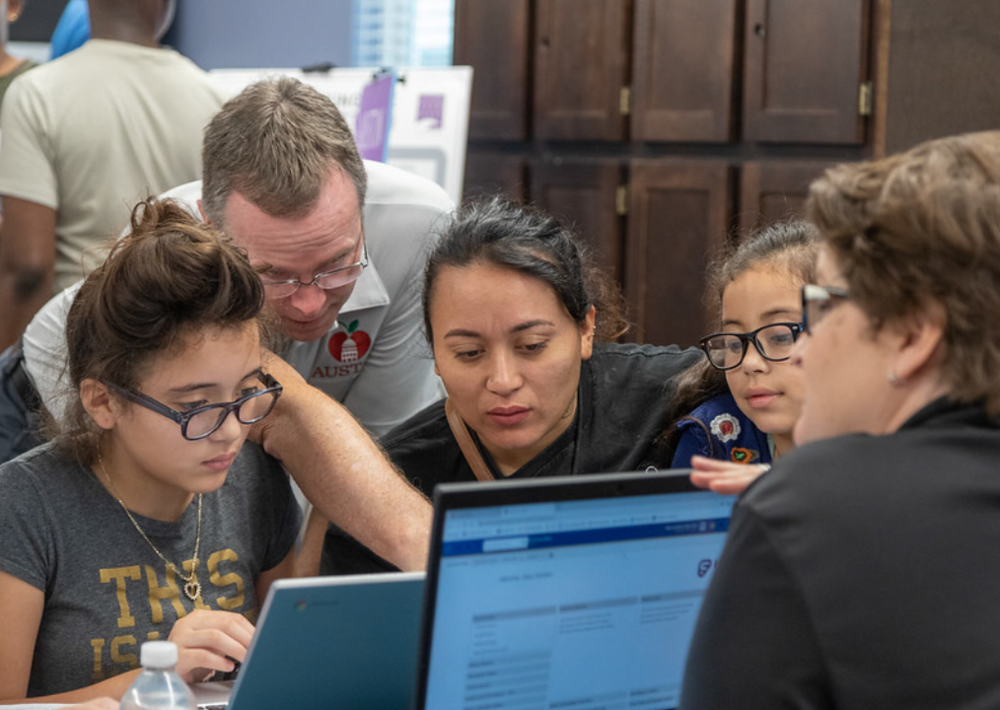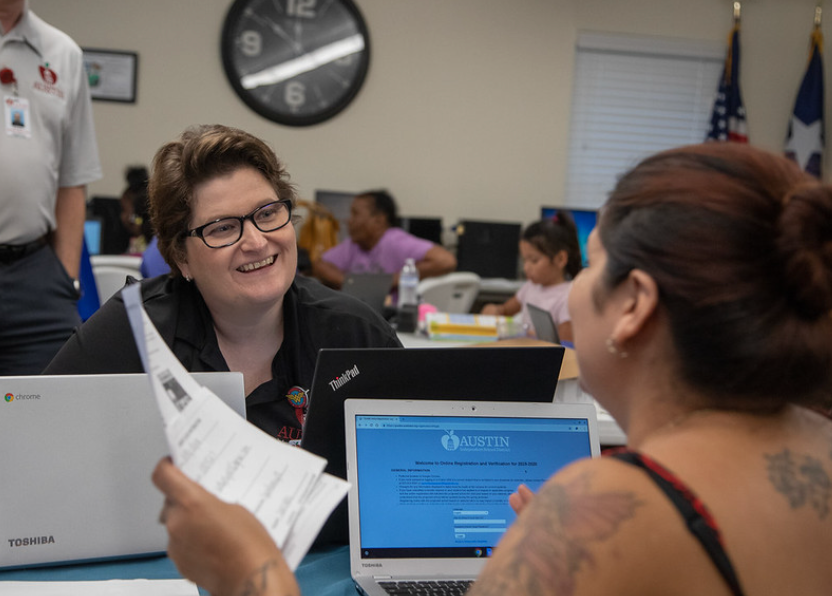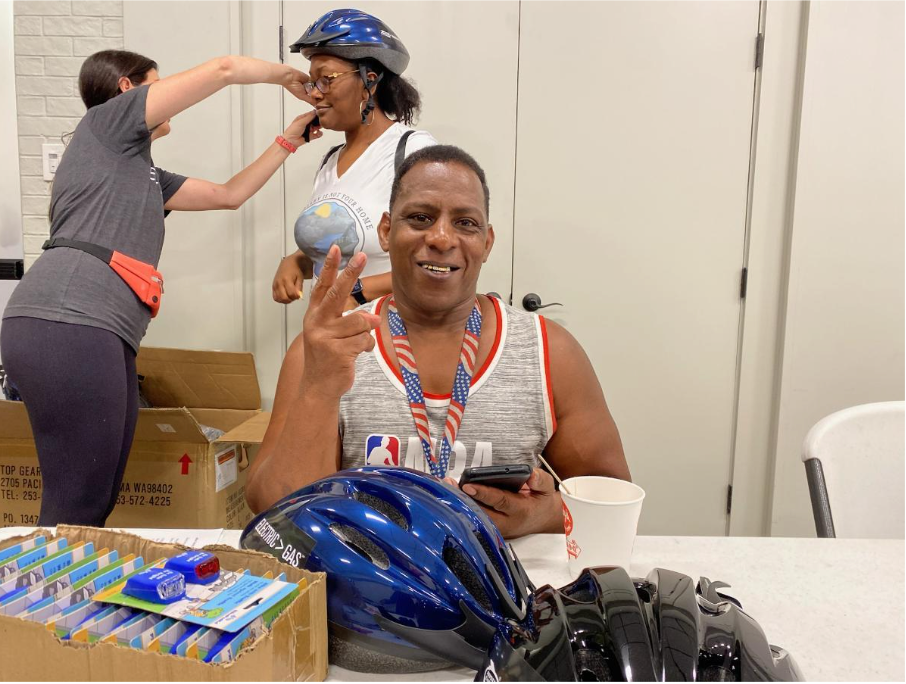Welcome to CLPHA's Press Room
CLPHA experts welcome interview requests from print, radio, television, and online reporters and are happy to provide their insights on issues of public housing and related legislation and policy.
For media inquiries, please contact:
David Greer
Director of Communications
(202) 550-1381 or [email protected].
*Please let us know if you are working on deadline.
To view all of CLPHA's press releases, click here.
To view all of CLPHA's press statements, click here.
You can subscribe here to our biweekly newsletter, events invite list, and topic specific newsletters. You can also follow us on Twitter at @CLPHA. Or, send us an email with your interests and we would be happy to add you to our press lists.
Thanks again for your interest in CLPHA!
From the Oregon Health Authority and Department of Human Services' news bulletin:
In 2017, Home Forward began testing its Portland public housing buildings for radon to prepare for a major rehabilitation project. The agency discovered some buildings had elevated levels of radon, but guidance on addressing it was limited.
The U.S. Department of Housing and Urban Development (HUD) had issued recommendations for radon testing in 2013, but there was no requirement specific to testing public housing properties.
So, Home Forward took a proactive approach to addressing elevated radon levels, creating a policy to test, mitigate where necessary, and re-test all the properties it owns – more than 100 buildings. That spawned the Home Forward Radon Procedures Manual.
“The only way of knowing if a property or a unit has high levels of radon is by testing,” said Carolina Gomez,
Home Forward’s director of Integrated Facilities Services and Safety who helped draft both the policy and the procedures manual. “We don't know where we're going to find it until we test, so we are in the process of testing all our properties.”
...
Home Forward is now on track to completing testing and abatement at all its properties – home to some 14,000 households – by the end of 2023.
OHA took notice of Home Forward’s success in developing its radon policy and procedures manual. In late 2022, OHA published its own Radon Testing for Multifamily Buildings guide – available on OHA’s Radon Resources page – to help multifamily building owners and managers in the state accurately test their buildings for elevated radon.
“What inspired us was the Oregonian’s “Cancer Cloud” article, and then learning about Home Forward’s commitment to test their buildings for radon,” said Jara Popinga, OHA’s Radon Awareness Program coordinator. “It was clear that local housing authorities could use more support and encouragement for radon testing.”
OHA had recently finished the protocols and procedures document for testing radon levels in schools – as part of ORS 332.341 and 332.345 – and a risk communication tool kit. It was an opportunity for the agency to reconstruct those resources to make something geared toward property owners and tenants. Because Home Forward has experience with radon testing in multifamily buildings and communicating with tenants, “we thought they would be a great partner to work with to build these resources. Lucky for us, they agreed to provide support and input on our materials,” Popinga said.
Read OHA's news bulletin "Housing authority’s radon procedures manual inspires state protocol," featuring Home Forward.
From ABC 5 News Oklahoma City:
Millions of dollars were approved on Thursday to fight homelessness through Oklahoma City's MAPS 4 program.
The plan included a partnership with the Oklahoma City Housing Authority to add more than 500 supportive and transitional units, preserve 1,500 public housing units and build 150 workforce homes.
"This is just a piece in that bigger puzzle to try and help solve the homelessness problem we see here," said David Todd, the MAPS program manager for the city of Oklahoma City.
Five allocations of $10 million were approved by the MAPS 4 Citizens Advisory Board to address the need for housing in Oklahoma.
Read ABC 5 News Oklahoma City's article "MAPS 4 board approves millions to fight homelessness in Oklahoma City," featuring the Oklahoma City Housing Authority.
From NBC 7 San Diego:
Homeownership is often seen as a step towards laying down roots in a community and building generational wealth, and groups in San Diego are working to increase access to homeownership for Black families.
An Urban League Study reports 29% of Black San Diegans are homeowners, compared to 35% of Latinos, 54% of Asians and 54% of white in the same city.
“There is an enormous racial wealth gap that we are hoping to close here in San Diego specifically focusing right now on Black San Diegans and one way to accomplish that is through home ownership,” San Diego Foundation Vice President Pamela Gray Payton said.
San Diego Foundation is leading an effort with partners to increase homeownership in the Black Community.
Through the foundation's Black Community Investment Fund, they are helping first-time homebuyers attain approximately $40,000 in grants towards the purchase of a house.
...
The San Diego Housing Commission announced on Jan 30. a $184,000 grant awarded to SDHC affiliates to support homeownership programs for people of color.
The San Diego Foundation said they will continue their efforts until the homeownership gap is closed.
Read NBC 7 San Diego's article "San Diego Leaders and Organizations Working to Boost Black Homeownership," featuring the San Diego Housing Commission.
HUD has announced a total of $116 million in Family Self Sufficiency (FSS) Program awards to 714 PHAs. The awards include $109 million to 682 PHAs for the 2022 Renewal FSS Program, and an additional $6 million to 32 PHAs and 38 Project Based Rental Assistance (PBRA) owners for the 2022 New FSS Program. These funds will be used to assist families in increasing their assets and improving their financial stability through the Family Self Sufficiency (FSS) program.
A total of 62 CLPHA members received $24,321,429 in FSS renewal awards, which will fund 267 renewal positions. CLPHA would like to congratulate its members who received an award.
Today HUD also published an updated version of the FSS Program Guidebook that encompasses information on the new FSS rule and support for PBRA owners. This guidebook will be a key resource for the 70 new FSS programs that were announced today.
The FSS Program was greatly expanded in 2022. New regulations published in May removed potential barriers to the program by allowing any adult household member to apply (not just the Head of Household) and eliminating a cap on savings for higher earners. FY22 was the first year ever that PBRA owners were eligible to apply for funding.
The Housing Authority of the City of Austin (HACA) is one of the leading housing authorities in the field of digital connectivity, offering several services to residents to improve digital inclusion. Eight years ago, HACA identified that their residents were missing out on the many online services and opportunities due to the digital divide – that is, the gap between those who have consistent access to modern information and communications networks, technology, and devices and those who do not. At that time, when 94% of the city’s residents had an internet plan, only about 4% of HACA residents had one. Today 77% of HACA residents have a consistent very high-speed internet connection in their unit, thanks to a zero-cost partnership between HACA and Google Fiber. In 2023, HACA expects to achieve 100% connectivity for residents by connecting four additional properties, thanks to PCs for People and Indeed.

HACA Community Health Worker Myra Rubaclava leads a Google Fiber crew at a senior property. Rubaclava, who completed digital navigator training with the National Digital Inclusion Alliance and has served as a HACA resident Digital Ambassador. Rubaclava “prescribes” digital tools training for residents who can benefit in their health plans.
Without a free internet service, resources like telehealth, online bill payment, and opportunities for educational and workforce development were out of reach for residents, negatively impacting their abilities to utilize essential online services. HACA’s Head of Strategic Initiatives Catherine Crago shared with CLPHA the work that the agency is doing to bridge this gap in digital connectivity, the importance of partnerships, and the amount of residents’ input needed to make this endeavor successful.
In November, 2014 HACA launched the Unlocking the Connection initiative to bridge the digital divide for their residents. The goals of HACA’s initiative were to:
- Provide residents with free and very low-cost high-quality internet access, refurbished devices and digital literacy;
- Build an ecosystem that gives residents timely access to just-in-time digital connectivity supports; and
- Ensure that residents are equally able to participate in online society.

HACA families learn to register for Austin Independent School District’s Parent Portal at a 2019 Back to School event. Laptops were provided by Charter Spectrum.
Under the initiative, residents at 14 properties receive free, high quality internet through Google Fiber or guidance on how to register for the FCC’s Affordable Connectivity Program, refurbished devices, as well as digital literacy training catered to all ages.
Catherine said that providing residents with just the basic equipment and internet connection outlined in the first goal is not enough to achieve digital connectivity. The second goal is achieved by engaging HACA residents to help their neighbors to use this connection to further their goals and aspirations. The final goal of the initiative, and HACA’s wider mission of advancing digital connectivity, is achieved by building trust, facilitating civic engagement, and ensuring that all individuals they serve are equally able to connect to the digital world.
To successfully carry out these goals, HACA has partnered with both local and national organizations. Over the past six years, along with 157 IT interns from the Austin Community College, over 120 HACA residents have been hired and trained as stipend-paid Digital Ambassadors to help with the initiative. These resident Digital Ambassadors often act as liaisons between the residents and technology companies, informing the companies of HACA residents’ built environments and needs, while serving as a bridge to ensure residents are informed about how to use a company’s technology safely. This relationship has been extremely useful to residents who reported feeling uncomfortable with allowing internet service providers into their homes due to safety and COVID concerns during the pandemic. In addition to working with the liaison team, Digital Ambassadors at HACA can work on different intervention teams including outreach, research and engineering, and education. All of the teams center on building residents’ trust and concerns, as well as advocating for residents’ needs within their individual teams. HACA’s Digital Ambassadors met with peers in other cities to expand their thinking about how navigator programs could operate and share best practices on how best to serve their residents.

At HACA's 2019 Back to School event.
Catherine said it is important to choose partnerships wisely, especially when considering corporate partnerships. To other public housing authorities looking to engage in this work, she advises to first consider the problem you're facing, figure out who is working to solve the same issue, and what you can learn from other public housing authorities working toward this same goal. The next step is to create partnerships with those organizations who have assets and resources that you may need to accomplish your shared goal. For example, a city ordinance requires micro-mobility providers, such as eBike and scooter providers, to serve every part of the city, not just downtown. In its partnership with Lyft, Lyft provided reduced-price mobility memberships and income opportunities for HACA residents at properties across the city. Austin Energy has invested in training Mobility Ambassadors to teach their neighbors how to use app-enabled eBikes around the city for short trips – and has made the year-long MetroBike membership free for HACA residents. Last Fall, Austin Energy and BikeTexas led a transit adventure from a senior property to a local grocery store – residents learned to download the eBike application, create their account and interact with the digital interface to unlock bikes.
The role of residents in developing this initiative has been critical to its success. Digital connectivity is important to HACA because of how necessary it is to ensure residents’ rights and autonomy. While developing the initiative HACA focused on residents’ wants and needs and ensured their participation throughout the entire process. With trust being one of the major barriers to overcome in an initiative like this, HACA involved residents in designing the program, through focus groups, innovation teams, and its Digital Ambassador program so that they were able to build trust while bringing this initiative to life. Catherine characterized HACA’s strategy to include residents early on when developing initiatives by citing a method from the Agile Development Theory of product development, saying, “We start slow and small to go fast.” For HACA, being and slow and deliberate at first, carefully soliciting and incorporating resident voices during the development of their Unlocking the Connection initiative, led to a smoother, more efficient rollout of the program that holistically and thoughtfully connects residents with more online services, resources, and opportunities.
PHAs are uniquely well-positioned to help bridge the digital divide given that they house and provide services to some of our nation’s lowest-income and most disconnected families. To learn more about how PHAs like HACA are pioneering this important work, and how CLPHA’s Housing Is Initiative supports the advancement of digital connectivity initiative, click here.
More resources:

At Lakeside Apartments, HACA residents learn to use the digital tools they need to unlock free eBikes before a group ride to the local grocery store. Austin Energy and MetroBike invested in bridging the digital divide to catalyze adoption of EVs by low-income residents.